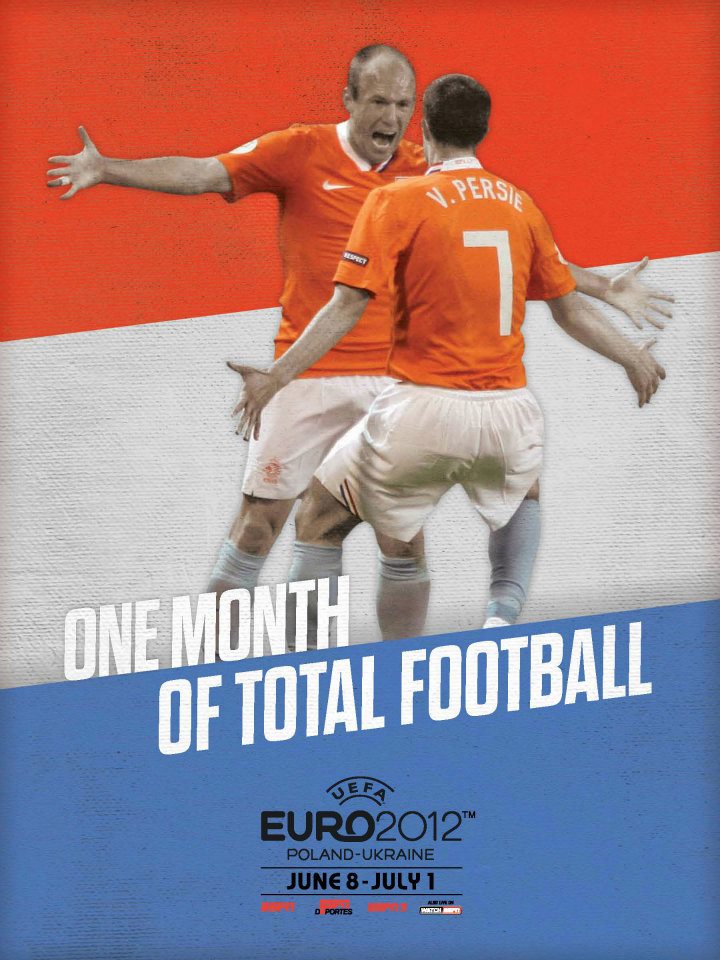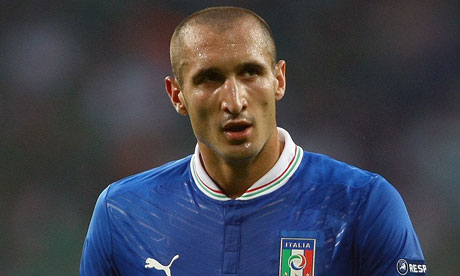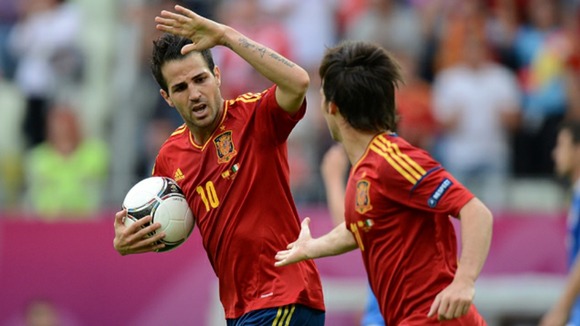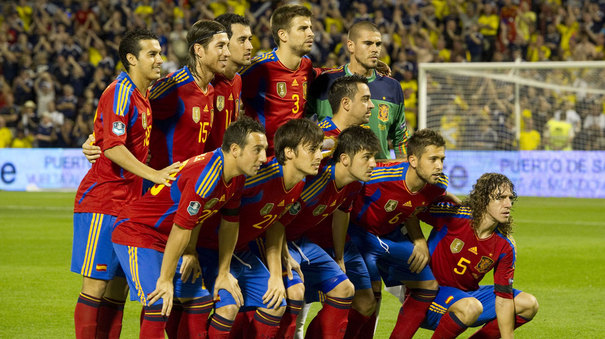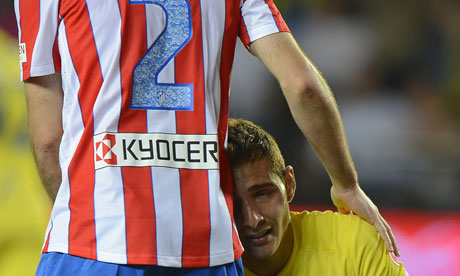‘Turmoil’ has been the watchword the summer across La Liga. It’s been in abundance almost everywhere. From Málaga’s Qatari backers turning off the taps, to disputes over television rights almost halting the start of the season for the second time in three years, it’s been there in spades. Organisationally and financially, things are a total mess. Nothing new there, then. Few clubs have escaped the chaos. This week in Bilbao, it struck a heavy blow.
Of course, Athletic’s summer hadn’t been exactly ideal up until then. Having won admirers everywhere last season under the footy hipster’s favourite coach, Marcelo Bielsa, it looked at one point like the Argentine might be stepping down. One of his suitors the summer before had been Sevilla, but when the club refused to accede to demands on remodelling their training ground, he declined their hand.
And this is where it started in July. Renovation works being carried out by a contracting firm close to the club hierarchy drew his ire. Not only were the works running late, but they ran contrary to what he’d agreed. When the club issued a statement to the effect that the problem was ‘nobody’s fault’, he issued a withering statement of his own blasting them. After a tense 24 hours, the club managed to talk him down but he didn’t retract his accusations.
Then, this past week the bombshell dropped; or to be more precise, two. Lsst Tuesday their talismanic centre forward, Fernando Llorente announced that he wouldn’t be renewing his contract at the end of the season. Then it emerged that Javi Martinez, coveted by but too expensive for Barcelona, was the subject of a substantial bid from Bayern Munich. On Saturday, Bielsa stated that neither would figure in Sunday’s squad.
The lack of depth in Athletic’s squad was the main reason behind their collapse in the latter stages of last season. Their policy of only buying Basque- however much they might stretch the term to the limits of credibility at times- handicaps their transfer market activity. Every signing is a painstaking effort, but the simple fact is that there are few players in the league matching the profile of the pair; and certainly no ready made Basque prospects.
With Iker Muniain also sidelined, they had to make do without their three best players. This made the initial eleven all the more puzzling. Aritz Aduriz, a more than competent goalscorer, arrived in the summer from Valencia but instead Bielsa opted for Gaizka Toquero. A fan’s favourite he may be, and he’ll run around until his legs seize up, but his goals to games ratio is a poor one.
But it was at the other end where Bilbao were all over the place, and within 7 minutes Rubén Castro drifted through a dozing defence to rifle the visitors into the lead. Bilbao dominated, but it was a domination of a sterile sort lacking purpose and incision.
On 25 minutes Jorge Molina doubled the pain, with the defence again at sixes and sevens. Five minutes later the ball broke to an unmarked Beñat at the edge of the box. This was turning into a humiliation. The San Mamés crowd, noted for never turning on their team, murmured in discontent.
But if you thought that it was game over, think again.
Aduriz was one of two half-time changes, and instantly his movement between the defenders only reinforced the bafflement as to why he hadn’t started. Suddenly seeds of doubt had been sown in the minds of Betis’ defence. And then Oscar de Marcos cut in from the left to make it 3-1.
This was a different Bilbao. They couldn't- could they? They could. After battering the visitors for the next 20 minutes, they won a corner on the left. The former Liverpool defender Mikel San José planted a bullet of a header past a helpless Fabricio Ramírez as the grand cathedral erupted.
The equaliser was now inevitable, and when it came it was a carbon copy. This time the corner came from the right, but once more it was San José powering an unstoppable header into the net. Betis were shellshocked. With 15 minutes remaining, only one side was winning this one.
And that’s how it transpired. Except that it wasn’t to be the hosts. Bilbao, understandably, had grown giddy, drunk on adrenaline. Mikel Susaeta harried after a ball that was going nowhere, falling over.
Suddenly it was going somewhere. With the defence losing their heads, it fell to the substitute Pozuelo who kept his, stroking it home to shift the momentum decisively back in the Andalusian’s favour. Five more minutes, and with the hosts again in rag order, Molina’s second proved the coup de grace.
The luck of sheer disgust on the faces of fans streaming out of the stands told you all you needed to know. There is never a dull moment with Bielsa teams, whose all energy attacking keeps viewers on the edge of their sets. But with Keystone Kops defending like this, many had decided enough was enough and vacated theirs.
Bielsa is as much a one off off the pitch as he is on it, and his assessment after the game was interesting as he sought to calmly dissect a frenzied 90 minutes which had largely defied analysis. “Absences are not a justification for this defeat,” he quipped.
“Just before kick off, we were clear in our minds and focussed on what we had to do. We lost fair and square, and it’s not correct to say that absences, a lack of focus, or the mood explains why we lost”
“We didn’t show the control needed in defence having come back, we lacked tranquility and had we been a bit less impatient the chances to win would have arrived. It’s difficult to weigh the effects [of the absentees]... But the fact is that we’ve been working for two months to address the issue of playing staff because the main complaint last year was that we had no spare parts.”
One potential spare part remains the Betis goalscorer Beñat. Bilbao were a breath of fresh air last season. It’s unrealistic to assume that they can scale such heights again this term. But it’s entirely fair to assume they’ll remain as fun to watch as ever.
Champions Real Madrid got their campaign off to an underwhelming start, drawing 1-1 at home to a Valencia coached for the first time by their former defender Mauricio Pellegrini.
Having hit the front through Gonzalo Higuaín, the biggest talking point came as Jonas equalised. An ugly clash between Iker Casillas and Pepe left the pair floored, and it was several minutes before play resumed.
Even then, Casillas looked absolutely shaken and it was something of a surprised to see him trot out again after the break. No such luck for Pepe however, as the Portuguese defender spent the night in intensive care, and that’s about all that that can be said about his current condition.
The other major talking point was a goal that wasn’t given. As Roberto Soldado skipped past Xabi Alonso, the linesman’s flag shot up before he rounded Casillas to finish. Once the replay became available, suspicions were confirmed. Sergio Ramos had played him on, and it wasn’t even a close call. Valencia veteran David Albelda was the night’s main guest on the show Futboleros, and the uncompromising defender wasn’t in the mood to mince his words. “We have the feeling that something like this will always happen at the Bernabéu.”
But all said, Valencia can at least take heart from a point well won at a ground where only only three sides came away with anything the year gone by.
Happier events at Camp Nou, where the story was all about the man coming back from serious injury. Sure, we can talk about how Barcelona, roused by a swift Sociedad equaliser, roared into a 4-1 lead by half-time. But we won’t.
This day was all about David Villa. Almost eight months to the day since the horrific leg break that sidelined him from the European Championship, he sprang from the bench to complete the scoring. Up came his shirt to reveal another emblazoned with the words “Impossible without you!” above a picture of his wife and children.
Sunday’s late-kick off between Levante and Atlético only reinforced the argument that it was a time to be tucked up in bed and not to be at a football ground. The LFP might claim these ungodly kick-off times offer a respite from the searing heatwave afflicting the country, but nobody’s buying the line. Least of all the fans who have to head home at 1am when they have work in the morning. Perhaps the new key market for the league is the New Zealand Monday morning breakfast market.
At the Iberostar on Saturday night, the fans voted with their feet and the few who bothered to turn up voiced their disgust at the league and the RFEF. On the field, a Hemed brace earned Joaquín Caparrós’ side a 2-1 win over an Espanyol exhibiting the same old problems. Lots of titilation, but very little action inside the box.
Wakaso made a goalscoring debut for the visitors, looking lively throughout. Perhaps a little bit too lively as Mauricio Pochettino had to haul him off as a precaution against picking up a second yellow.
And man of the week? That’s a simple one. Although, perhaps not, because the man of the week isn’t quite a man. This honour goes to Málaga striker Fabrice Olinga. With precious few options available up front, Manuel Pellegrini had little choice but to turn to the youth teamer, a prospect picked up from the Samuel Eto’o football foundation in Cameroon.
As a helter skelter encounter away to newly promoted Celta Vigo looked set for a draw, the youngster struck the winner minutes before the end. At 16 years and 98 days, the forward is the youngest goalscorer in La Liga history.
Results:
Celta 0 Málaga 1
Sevilla 2 Getafe 1
Mallorca 2 Espanyol 1
Athletic Bilbao 3 Betis 5
Real Madrid 1 Valencia 1
Barcelona 5 Real Sociedad 1
Levante 1 Atlético Madrid 1
Tonight:
Deportivo v Osasuna (18:00)
Rayo Vallecano v Granada (20:00)
Zaragoza v Valladolid (22:00)

